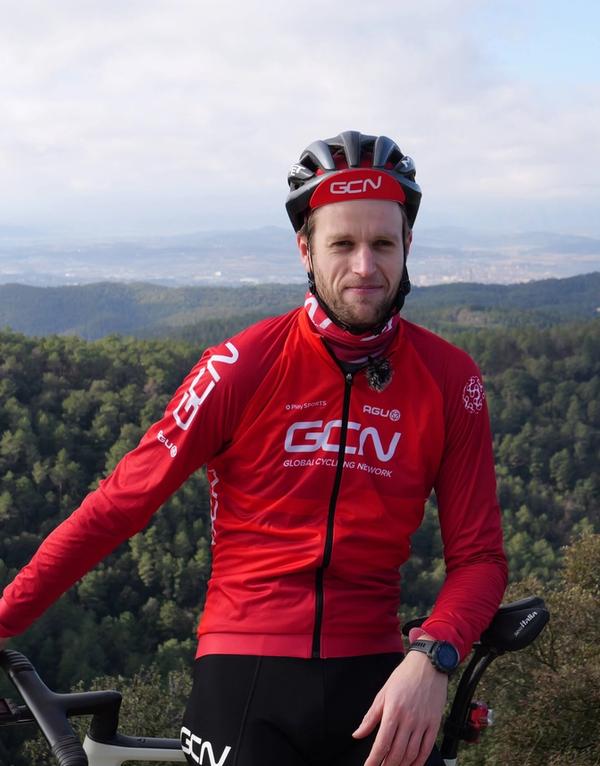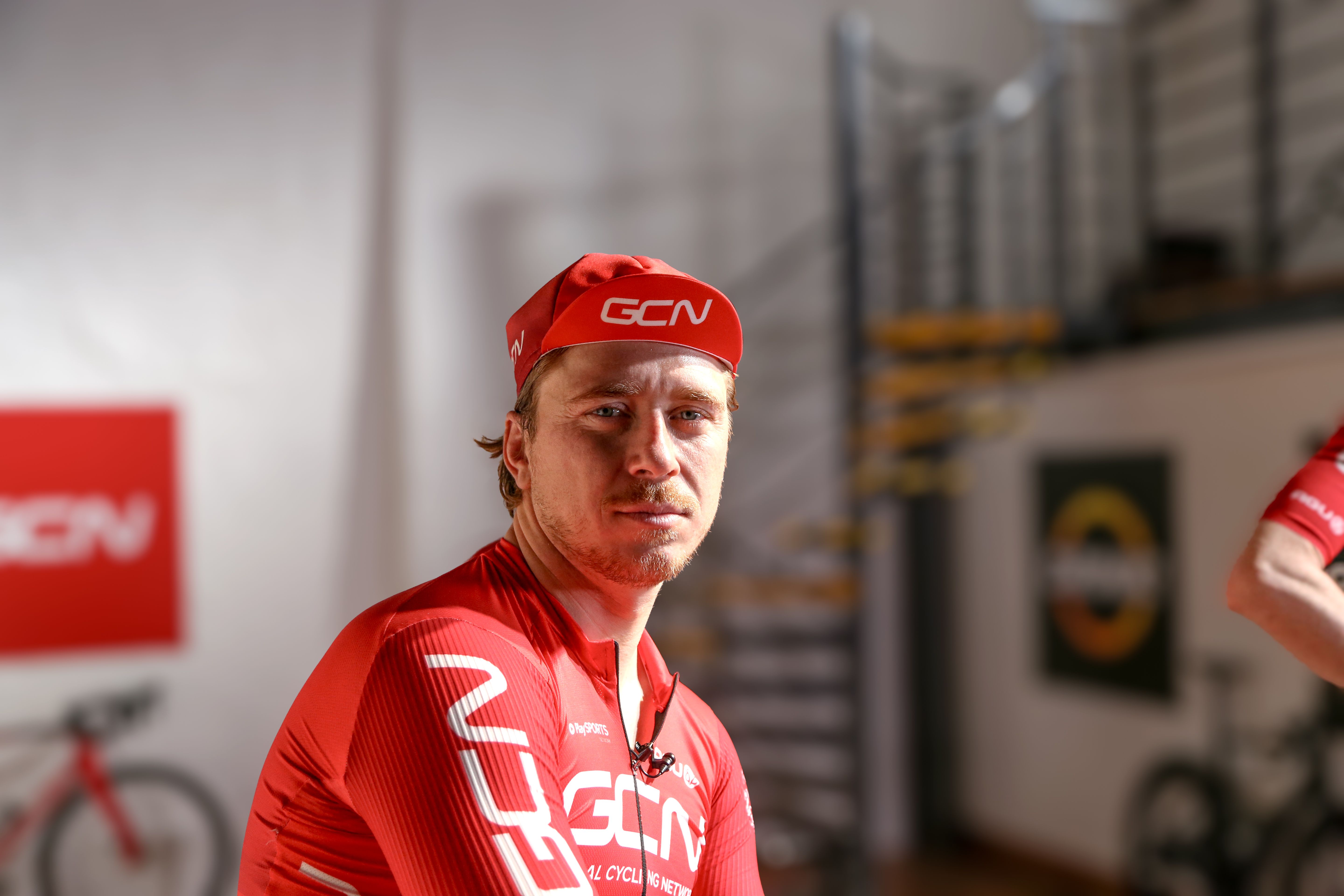Six things that should be banned in pro cycling, according to GCN
We might poke fun at the UCI and call them the fun police, but if we had our way, we'd add these six things to the UCI rule book
Alex Hunt
Junior Tech Writer
If there's one thing the UCI love, it's new rules. So we think they'll be pretty receptive to our new suggestions. The Union Cycliste Internationale, or the UCI, is the global governing body for all veins of competitive cycling, meaning they have the power to influence the sport more than any other organisation. They decide on the rules that races, riders and teams have to abide by, from racing rules and prize money guidelines, to regulations about kit and equipment.
Are their rules going far enough? GCN's Conor Dunne and James 'Hank' Lowsley-Williams sat down this week to delve into a hypothetical world and suggest six things they think should be outlawed by the UCI. Here's what they came up with.
Motorbikes
This is an interesting one and has been a topic of discussion for a few seasons now, with unequivocal wind-tunnel evidence suggesting that motorbikes could - and indeed have already - influenced race results. Of course, without the motorbikes to capture the race footage, the world of pro cycling wouldn’t exist, as there would be nothing to broadcast.

velo
Motorbikes can have a genuine effect in how a race plays out, offering a substantial draft to riders
One potential solution being touted by former pro Adam Hansen is to use lasers as a marker showing how far away the motorbikes need to be from a rider to have no effect on the riders. This would ensure that there are no massive aero gains for riders, who can currently in some situations sit only a few metres away from a motorbike, definitely benefitting from the draft.
Another option that has been introduced recently in mountain bike racing is the use of drones for close-up footage. This has its own concerns and limitations, but for select sections or in crit-style races, this could be an option that removes the need for motorbikes completely.
TT bikes
Loved by triathletes and GCN's Ollie Bridgewood, time trial bikes fit a very niche purpose in the world of cycling. They are designed for flat-out speed and feature some of the most cutting-edge technology in our sport.
Here is where the problem lies: the time trial discipline is supposed to be the race of truth, where there is nowhere to hide and the legs do the talking. In recent times however, it is becoming more and more the race of tech. Time trialling has become an arms race, with bigger and bigger budgets being spent on honing in on more aerodynamic positions and equipment.

velo
Remco Evenepoel's TT position has been a result of countless hours of testing and development, something not attainable by all teams.
We saw this at the recent World Championships in Glasgow where riders from countries with smaller budgets were racing the time trial on either standard road bikes or on older time trial bikes with very little aero optimisation. Taking nothing away from Remco Evenepoel’s maiden world title in the discipline, but the hours of refinement and development that went into that victory is something that is just not attainable for smaller-budget outfits.
If time trial bikes were banned, this would drop everyone back to more of a level playing field, less dictated purely on the technology side of things, and more about the physical capabilities of the rider themselves.
Sprint stages over 100km
If you have ever followed a Grand Tour from start to finish, you will know that there are some incredible days in the mountains, where riders suffer for hours on end over some of the most challenging terrain imaginable on a road bike. Accompanying these incredible stages are sprint stages that tend to be relatively flat and uneventful until the last 30km or so when things start to ramp up, building towards the explosive finish.

velo
Sprint stages are a slow burn to an inevitable final. Would shortening the stages influence the result?
The point has been made over and over again that the length of these stages doesn’t really tend to influence the end result as every sprinter has had to go through the same course to get there. Some of these long sprint stages have been thrilling with breakaways that go the full length or surprise attacks, however these are definitely exceptions to the rule. If stages were shortened, this would maximise the excitement with racing more likely to be aggressive from start to finish.
Races that overlap with Grand Tours

© Velo Collection (TDW) / Getty Images
The Tour of Britain is set to coincide with la Vuelta
Grand Tours, and for that matter the Monuments, are the biggest races in the sport, and they deserve the unwavering attention of fans and the riders. If we could ban anything to do with race calendars, it would be to prevent any other races from taking place at the same time as these pillars of the racing calendar. Not only does it dilute the racing content at the time, it also removes a lot of viewership from the smaller races that don't have the pull of a Grand Tour or Monument.
Race radios
This one has been a topic of debate for many years with a clear divide in riders that are for and against radios being used by teams in races. Stopping this line of communication between the riders and the team directors would change the dynamic of racing. Riders would have to ride off of their own senses and make decisions based on what they can actually see in the peloton.

velo
Removing race radios would undoubtedly change tactics within teams
Race radios have a place in the peloton for safety purposes, allowing directors to inform riders of any hazards, pinch points or crashes that are happening in the race. However, this does also allow directors to command the team to ride in ways that can cause stress, and as a by-product, crashes in the peloton. A classic example of this is in the build up to a sprint finish or heading towards a cobbled sector in the Spring Classics.
Having no race radio would force teams to change how they communicate and the role of the road captain would become even more important. Riders would also have less information about other teams and any riders that might be dropping or equally getting ready to attack. This undoubtedly would create a whole new style of racing that could be more exciting than the scripted racing we sometimes see with the use of radios.
Time limits
This one is somewhat far-fetched, but the banning of time limits during stage races is something that we would like to see implemented by the UCI. Time limits are there to serve a purpose - they prevent riders from taking it too easy and ensuring the race stays to a schedule that allows everything to move from stage to stage, so it's unlikely we'll see this rule change any time soon.

velo
Time limits have been the demise of many sprinters in Grand Tours
However, if we were allowed this dream of getting rid of the limits, it would allow sprinters to know that they can make it through the mountains and be fresh enough in the following days to fight it out for sprint victories. It would also allow for riders to take a moment to share time with fans much like we saw with AG2R Citroën's Benoît Cosnefroy at this year's Tour de France - the Frenchman was videoed climbing off his bike to party with the roadside supporters during one of the mountain stages.
Those are Conor and Hank's hot takes on what they think should be banned in cycling. What do you think?

.jpg?rect=957,780,3097,3060&w=600&auto=format)









.jpg?w=600&auto=format)